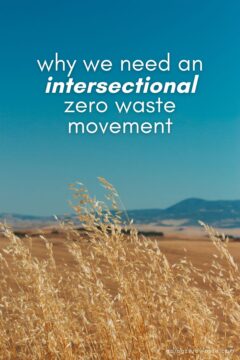Last Updated on February 19, 2024
You might’ve heard of Earth Overshoot Day before — but what is Earth Overshoot Day?
What is overshoot day? Earth Over Day is the day in each year that we’ve officially used all of Earth’s natural resources, and have begun using more than what is naturally available to us. Historically, this day has been about midyear, and the goal is to push Earth Over Day farther and farther in the year until eventually we’re not operating in a deficit. It sounds impossible, but we’re actually making progress!
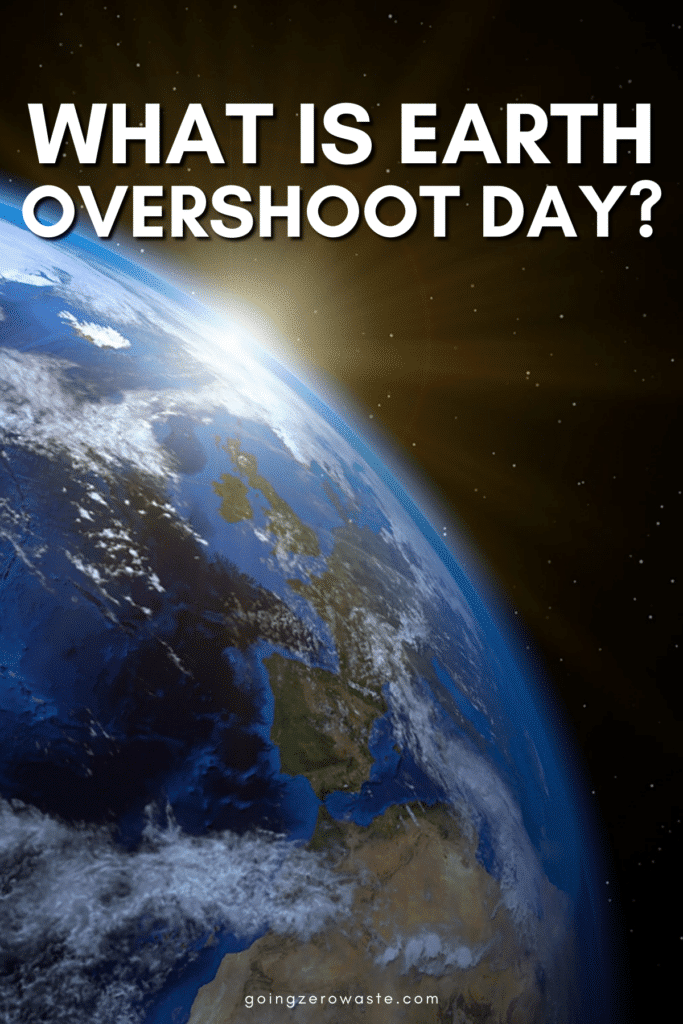
Table of Contents
earth over day
Essentially, Earth has a budget for the year — and we have a continual habit of using up Earth’s resources before the year is up. This means we have to “borrow” resources from the next year.
Truly, what it means is we’re over-consuming, over-fishing, over-harvesting, and over-polluting. In 2021, Earth Overshoot Day was on July 29th. For the year of 2021, we borrowed 5 months worth of resources from 2022. However, in 2023, we were able to push that date back to August 2nd.
Thankfully, there are ways we can push back Earth Over Day even more. Here’s everything you need to know about Earth Overshoot Day, why it matters, and action tips you can implement.
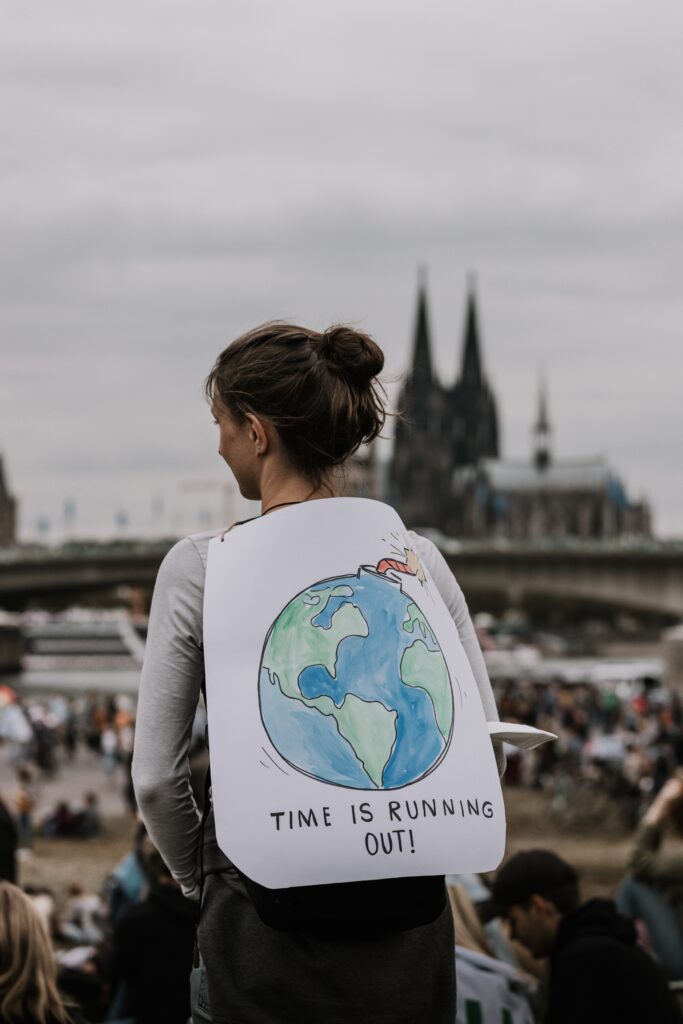
what is earth overshoot day in simple words?
So, in super simple terms, what is Earth Overshoot Day? Essentially, it’s the date we’ve used up all the resources Earth can renew that year. It’s more than our planet can sustain, and this happens through over-consumption.
We only have one earth, but overall, we’re living as though we have 1.7 earths. We need to start living within our means and move the date it happens to the end of the year if we want a thriving planet.
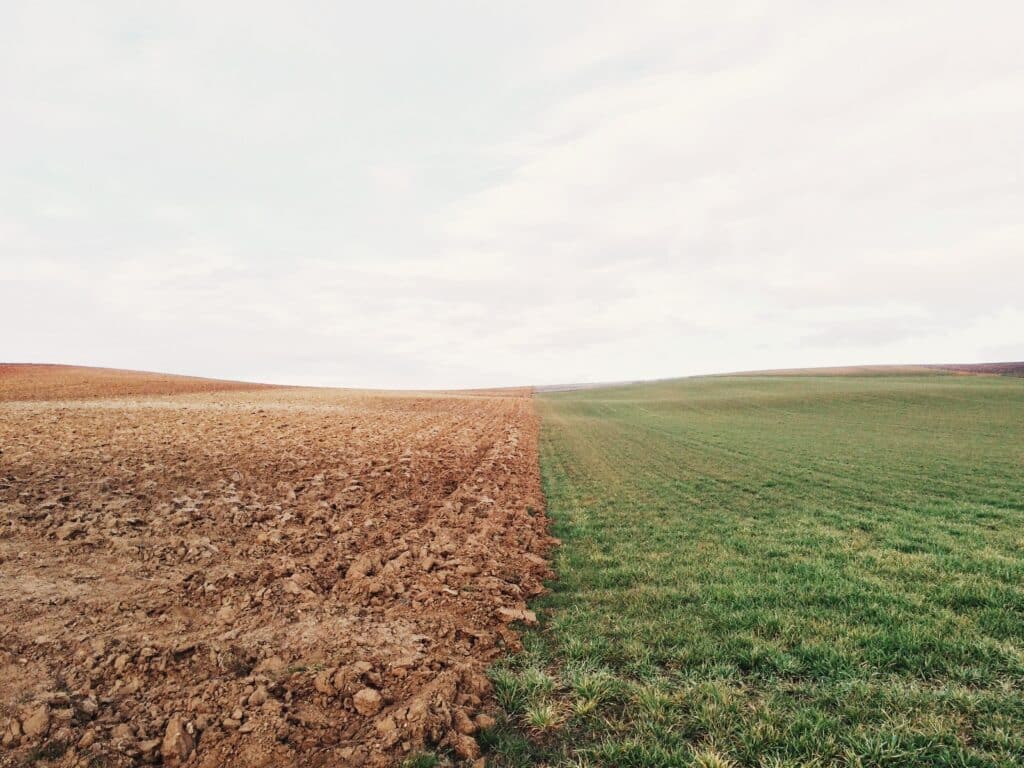
Earth Overshoot Day marks the date when humanity’s demand for ecological resources and services in a given year exceeds what Earth can regenerate that year.
Whatever the overshoot day is, that’s when we’re only depleting from here on out for the year. This is a huge problem if we’re ever going to curb over-consumption and put an end to the climate crisis.
It’s certainly possible to push the date back. For example, Earth Overshoot Day for 2020 was August 22nd — but sadly, it was only achieved because the pandemic was at its peak. This reflects the initial drop in resource use in the first half of the year due to pandemic-induced lockdowns. You can view past overshoot days here.

what is overshoot day and how is it calculated?
Who decides what is overshoot day and how do they calculate it?
Earth Overshoot Day is hosted and calculated by Global Footprint Network (GFN), an international research organization that provides a menu of tools to help the human economy operate within Earth’s ecological limits.
To determine the date for each year, GFN calculates the number of days of that year the Earth’s biocapacity suffices to provide for humanity’s ecological footprint. The remainder of the year corresponds to global overshoot.
Earth Overshoot Day is calculated by dividing the planet’s biocapacity (aka the amount of resources Earth can generate that year) by humanity’s ecological footprint, and multiplying by 365 (the number of days in a year).
Here’s the Earth Overshoot Day equation:
(Earth’s Biocapacity / Humanity’s Ecological Footprint) x 365 = Earth Overshoot Day
But how do you measure biocapacity and humanity’s ecological footprint?
Well, according to Overshoot Day’s website, biocapacity is measured in biologically productive land and sea area, including forest lands, grazing lands, cropland, fishing grounds, and built-up land.
Humanity’s ecological footprint is measured by a population’s demand for plant-based food and fiber products, livestock and fish products, timber and other forest products, space for urban infrastructure, and forest to absorb its carbon dioxide emissions from fossil fuels.
These are measured in global hectares, which is equivalent to 10,000 square meters or 2.47 acres. Each city, state, or nation’s ecological footprint can be compared to its biocapacity. If the population’s demand for resources exceeds the supply, that region runs on an ecological deficit.
So how do places in deficit meet demands? They import, liquidate their own ecological assets (ex: overfishing), and emit carbon dioxide into the atmosphere.
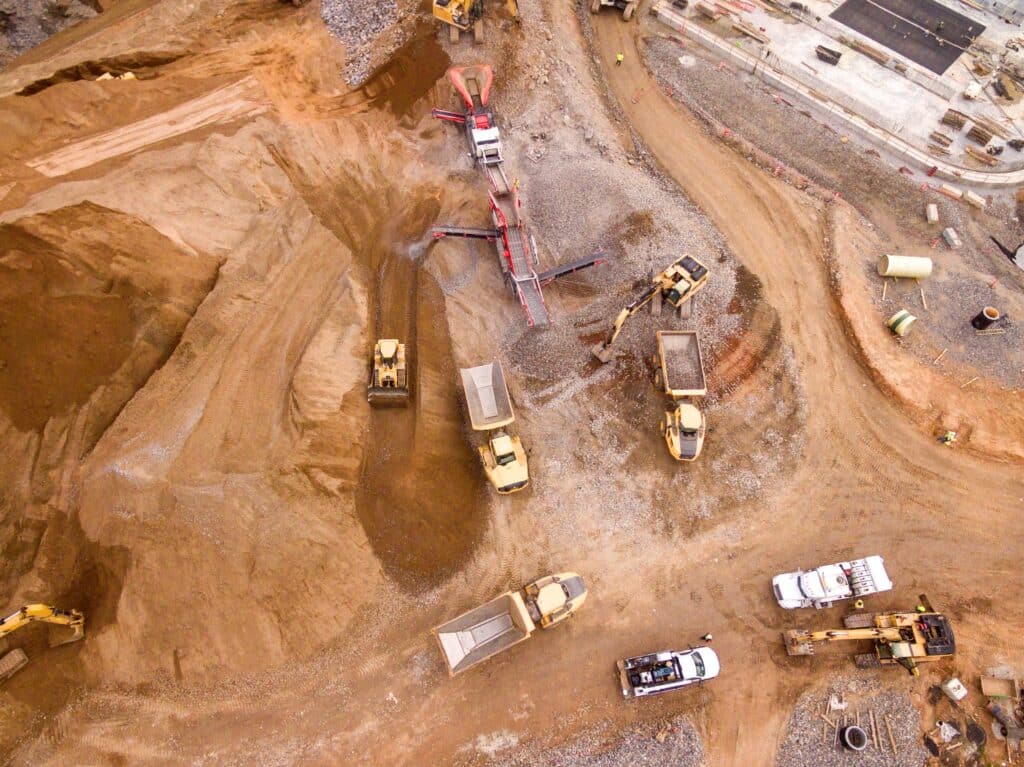
why does earth overshoot day change dates each year?
Earth Overshoot Day changes each year because emissions are on the rise and biodiversity loss is speeding up. Depending on how quickly the resources were used for that year, this will influence what the date will be.
Sometimes it can be the same date, but this rarely happens more than three times. For example, back in the 2010s, Earth Overshoot Day was August 3rd in 2011, 2015, and 2016.
While it is possible for a date to repeat, it’s unlikely to stay that way for very long because our continued resource use pushes the date forward.

what are country overshoot days?
Country overshoot days are the dates on which Earth Overshoot Day would fall if all of humanity consumed like the people in this country. Every country is different, but the more populated a country is, the more resources it typically consumes.
For 2024, if everyone consumed resources like The United States, Canada, and United Arab Emirates, we would run out of resources by March 15th. Even worse, Qatar was the earliest overshoot country day on February 11th. The countries with the most pushed-back date are Ecuador and Indonesia with a projected day of November 24th.
That said, not all countries have an overshoot day. A country will only have an overshoot day if its ecological footprint per person is greater than global biocapacity per person (1.6 global hectare – gha).

6 tips to #movethedate on earth overshoot day
Thankfully, we don’t have to just accept this date! We can help push it back through both individual and collective action. Here are some ways you can help right now:
1. join the #movethedate movement
The Earth Overshoot Day website has a section where you vow to become a Date Mover and accelerate the implementation of available and effective solutions to #MoveTheDate.
You can also connect with other Date Movers to share information, ideas, and solutions on their map of solutions. This map allows you to post your own solution and view others as well. It’s very interactive and a great way to find like-minded people and businesses in your area.
2. take on food waste
At least one-third of all the food in the world is wasted every year. The amount of food wasted is equivalent to about 9% of the global ecological footprint.
If we cut food waste in half worldwide, we could move Earth’s overshoot day by 11 days. That makes a difference, especially if we improve in other areas simultaneously as well.
Typically, fruits and veggies, plus roots and tubers, have the highest wastage rates of any food (40 to 50 percent) compared to cereals (30%), fish (35%), oil seeds, and meat and dairy (20%).
I make scraptastic recipes and share them on my TikTok and YouTube accounts if you’re interested in learning some unique ways to cook with scraps. Here are some more ways to reduce food waste.
3. travel with eco-sensibility
Thinking of going on a vacation? Before you do, consider vacationing closer to home to cut down on carbon emissions, or looking into eco tourism.
In general, I recommend seeking out high quality small-scale hotels that implement sustainable practices like composting, sourcing locally grown foods, and utilizing renewable energy. These kinds of hotels can reduce the global ecological footprint by as much as 48%.
Also, consider traveling via an electric vehicle — it can reduce the global ecological footprint by 40-50%! Or, try traveling via public transportation instead of using a gas powered vehicle.
When you’re at your destination, try to purchase locally sourced and organic food products. This will contribute to a 5% global ecological footprint reduction. It can really add up over the course of your trip.
Here are even more zero waste traveling tips — or better yet, how to have a sustainable staycation.
4. go plant based
If the world reduced meat consumption by 50% and got most of their calories from plants, we would move overshoot day back 17 days!
It’s no secret going plant based helps cut down on carbon and water footprints. Global livestock is responsible for 9% of all anthropogenic carbon emissions (at least).
Plus, it takes 14 times as much land to produce 1 ton of beef as it takes to produce 1 ton of grain. Imagine what we could be using that land for instead. Maybe growing sustainable and regenerative farms, pollinator havens, or simply rewilding.
Be sure to check out my food section for some plant-based recipes to inspire you.
5. commute carbon free
During the height of the pandemic, there were a lot of coronavirus-induced lockdowns that reduced driving. This alone was enough to move the overshoot date. We should build on this momentum by walking, biking, and using public transportation more.
Of course, advocating for more walkable cities and better bike lanes is always a great idea too. Some cities like NYC were designed around the transit system, but others? Not so much, and it shows.
I lived in California for years and the traffic was atrocious — it made going out pretty hard (just trying to find parking was a nightmare).
Support new infrastructure bills that advocate for walkable, commutable, and bikeable cities. And make sure to vote in people who support these bills too!
6. challenge city leaders
Did you know 60% of the world’s population is projected to live in urban areas by 2030? That means the efforts to fight climate change will certainly be won or lost in cities (because that’s where the majority of people are).
How we plan and develop our cities matters, and it’s important to tell your city leader(s) you care about sustainability. Make sure to go to your city’s website and find out about their environmental policies/commitments.
What do you feel can be improved in your city? Is it recycling, urban agriculture, renewable energy, or transportation? Find out how to contact your local officials about it — communicate through tweets, emails, letters, or phone calls.
Trust me when I say, they want to hear from you. Calling them especially leaves an impact because not many people do, but it takes only a few minutes of your time. All you have to say is your name, the topic/bill you want supported, and the reason/benefits behind it.
Here are more ways to get involved in your local government.
faqs
does earth’s population affect the date of earth overshoot day?
It does! The factors that affect the date are: consumption, efficiency of manufacturing, population, and how much nature is able to produce. So, the fact that the date hasn’t moved much in the last 10 years can be just as encouraging as it is disheartening. When you think about how we’ve added about a billion people to the world since 2014, it’s proof that we’re doing a better job at consuming less.
We have a ways to go, obviously. But proof it can happen is there if you look for it!
what happens once we pass the overshoot date?
We’re working on Earth’s credit in a major way once we pass the overshoot day. We draw down local resource stocks and accumulate carbon dioxide in the atmosphere, contributing to Global Warming and the climate crisis.
how can we push the date back?
Get the word out! Many people have no idea that this date exists, let alone why it matters. If each person is aware it exists and makes an effort to reduce their consumption, we can make a huge difference collectively!
So, are you going to help move the date? Comment your tips below!





